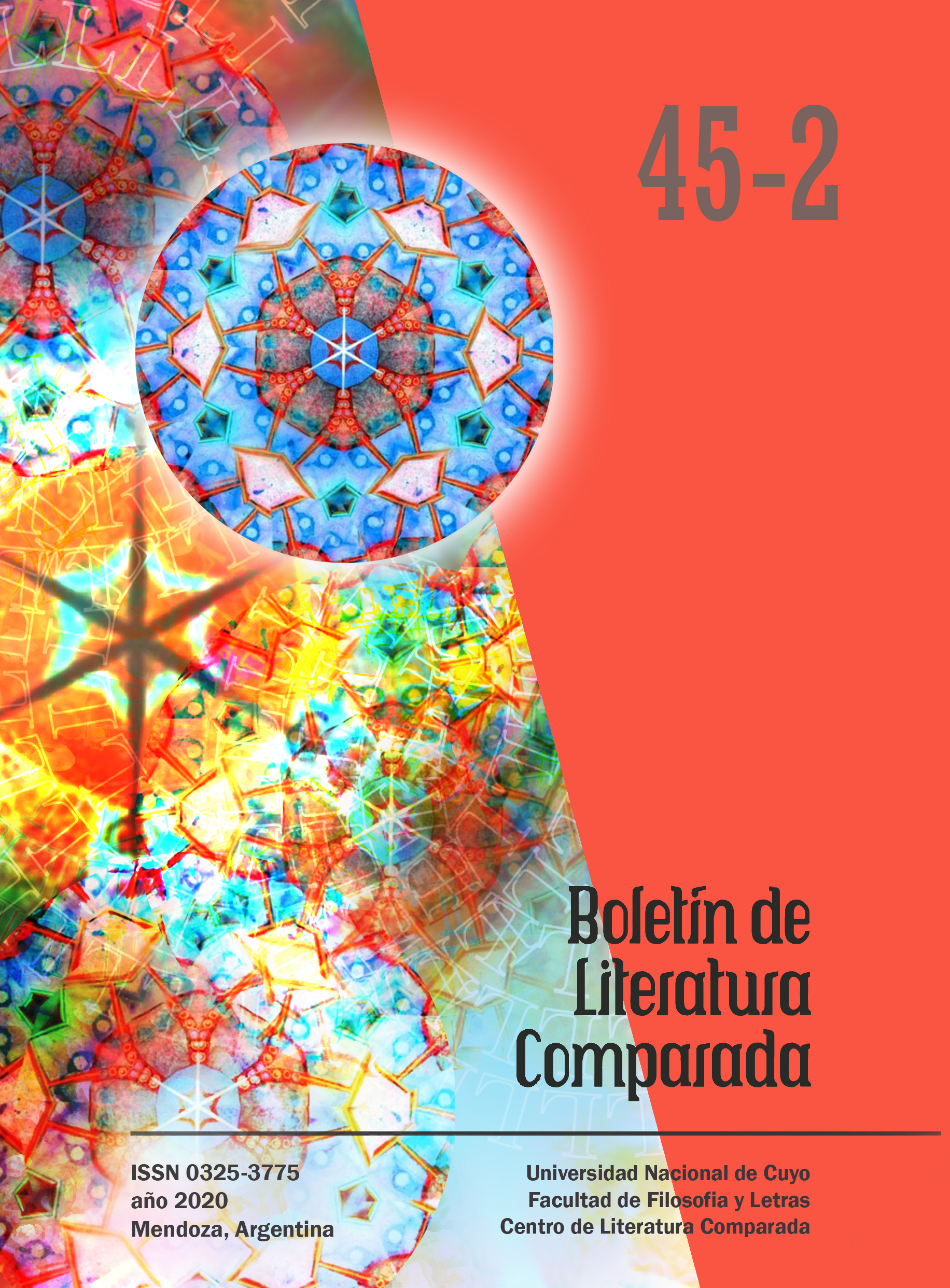From the Nation to the World, from National Culture to Cultural Networks. An Analysis of Javier Sinay’s, Julián Varsavsky’s and Fernando Krapp’s Travel Accounts about Japan
Keywords:
Argentinian Travel Writers, Travels to Japan, Japan in Argentinian LiteratureAbstract
The present study analyzes three books published in 2019, all of which refer to Japan’s symbolic universe: Javier Sinay’s Camino al este, Julián Varsavsky’s Japón desde una cápsula, and Fernando Krapp’s Una isla artificial. The focus of analysis is the way in which these travel writers depict Japan and their journey through this country (and in the case of Krapp, his journey within the Japanese community in Argentina). Strong emphasis is placed on the way in which Japan is interpreted as part of a bigger system that comprises the writers themselves as Argentinians. In the case of Sinay, that bigger framework is love, understood as a feeling shared by all human kind and capable of traversing frontiers. In the case of Varsavsky, said framework is a dystopian vision of Capitalism, in which Japan is the most developed example of dehumanization. In the case of Krapp, the only one of the three travelers whose book is not centered around a voyage to Japan, such general framework is the idea that all identity is a construction, that is, something beyond national and local determinations and roots. The study will try to show that, while building up a bigger system or universe of which Japan, Argentina, and other countries of the world are part, these three travel writers advocate for the dissolution of the very idea of the ‘nation’.
References
BARTHES, Roland, Fragmentos de un discurso amoroso. Trad. Eduardo Molina, Madrid: Siglo XXI Editores, 1982.
BUJALDÓN DE ESTEVES, Lila, "Otro viajero argentino al Japón: Jorge Max Rohde (1892- 1979)". En: Boletín de Literatura Comparada XXIV-XXV (1999-2000), 93-112.
BUJALDÓN DE ESTEVES, Lila, "Diálogo entre folklores. Las notas de viaje de Atahualpa Yupanqui al Japón". En: Cuadernos de CILHA (Centro Interdisciplinario de Literatura Hispanoamericana) 13, 1 (2012), 132-148.
BUJALDÓN DE ESTEVES, Lila, "Viajeros argentinos al Japón en el siglo XXI: tradición y globalización". En: Al Irfan, Revista de Ciencias Sociales y Humanas del Instituto de Estudios Hispano-Lusos (Marruecos) 1 (2015), 145-156.
DRUCAROFF, Elsa, Los prisioneros de la torre. Política, relatos y jóvenes en la postdictadura. Buenos Aires: Emecé. 2011.
ESPINAR CASTAÑER, Esther, La difusión de Japón en Argentina (1900-1945). Memoria de investigación. Departament de Ciències Històriques i Teoria de les Arts (Universitat de les Illes Balears), 2009.
GASQUET, Axel, Oriente al sur. El orientalismo literario argentino de Esteban Echeverría a Roberto Arlt. Buenos Aires: Eudeba, 2007.
GASQUET, Axel, "El orientalismo argentino (1900-1940). De la revista Nosotros al grupo Sur". Paper en progreso No 22. Latin American Studies Center (University of Maryland), 2008.
GELI, Carles, "Ahora uno se explota a sí mismo y cree que está realizándose". En: El País 7/2/2018 <[https://elpais.com/cultura/2018/02/07/actualidad/1517989873_08 6219.html ]>, 12/07/2020
HAGIMOTO, Koichi, "Borges and Japan". En: Chasqui 44, 2 (2015), 205-215.
KRAPP, Fernando. Una isla artificial. Crónicas sobre japoneses en la Argentina. Ciudad Autónoma de Buenos Aires: Tusquets, 2019.
MATSUSHITA, Naohiro, "SenkyÅ«hyaku rokujÅ« nenndai rainichi shita futari no tabibito: Hose maria hironÄ“rya, Atawarupa yupanki" [Dos viajeros que visitaron el Japón en la década del sesenta: Jose Maria Gironella y Atahualpa Yupanqui]. En: Jibun, shizen, ningen gagaku kenkyÅ« [Estudios sobre cultura, naturaleza y humanidades], Universidad de Takushoku, 17 (2007-08), 68-94.
ORTIZ, Renato, Lo próximo y los distante. Japón y la modernidad-mundo. Trad. Amalia Sato. Buenos Aires: Interzona, 2003.
SINAY, Javier, Camino al este. Crónicas de amor y desamor. Ciudad Autónoma de Buenos Aires: Tusquets, 2019.
SISKIND, Mariano, Deseos cosmopolitas. Modernidad global y literatura mundial en América Latina. Ciudad de México: Fondo de Cultura Económica, 2016.
VARSAVSKY, Julián, Japón desde una cápsula. Robótica, virtualidad y sexualidad. Buenos Aires: Adriana Hidalgo Editora, 2019a.
VARSAVSKY, Julián, "Japón: un viaje a la distopía tecno-confuciana, cerca de Nagasaki". En: Clarín 11/08/2019b, <[https://www.clarin.com/opinion/japon-viaje-distopia-tecno-confuciana--cerca-nagasaki_0_ankcgpJ_h.html]>, 21/06/2020.






